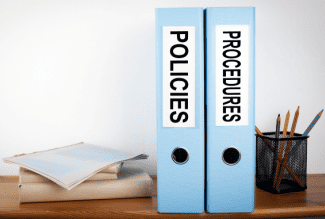Unable to evict tenants, some N.J. landlords sue them instead

Her landlord had filed to evict her from her Jersey City apartment over the summer, but because of the state’s eviction moratorium, she would not be forced to leave. After spending a few months without work, she had resumed her job as a mail carrier. And she had just learned that a county-administered grant of CARES Act funding would cover much of her back rent.
Then her landlord sued her.
“It was stressing me a lot,” Ortiz said. “I have my granddaughter here, I have my daughter, my son. I was like, oh my God, what (am I) going to do? Where (am I) going to get the money?”
Now in its 14th month, New Jersey’s eviction moratorium protects tenants from being forced out of their homes for being unable to pay rent. But, like Ortiz, some renters are facing a different kind of legal difficulty: lawsuits from their landlords seeking to recover unpaid rent.
“I can tell you that we have seen a substantial increase in those cases,” said Maura Sanders, chief counsel for housing and government benefits at Legal Services of NJ, a nonprofit that provides legal services to low-income clients across the state.
Usually, landlords rely on eviction proceedings, which are simpler and faster, to recover lost rent, Sanders said.
“But because the eviction courts are not hearing most cases right now, we are seeing more (civil) cases being filed and more actions brought,” she said. In some circumstances, Sanders said, landlords are using the civil cases “as a lever” to convince tenants to move out.
Such lawsuits do not violate the governor’s eviction moratorium.
Ortiz is a mail carrier for the post office, and her husband works in maintenance at a hotel, she said. Last year, in the early days of pandemic restrictions, she said, both were out of work for three or four months. CARES Act funds from the county’s eviction prevention program covered some of her back rent, but not all.
“Everything started to get behind,” she said.
In a November lawsuit filed in Hudson County Superior Court’s Special Civil Division, Ortiz’s landlord, Krishna Pradhan, demanded $15,000 and alleged that Ortiz was “in breach of the lease agreement for failing to pay rent and additional rent,” according to the complaint.
Most landlords Tarkan knows are willing to work with tenants on reaching payment deals, she said, “but when you have a tenant who doesn’t communicate, who refuses to communicate, that’s when these lawsuits are filed.”
“The eviction moratorium is only about not evicting people to keep a roof over their head,” she added. “It has nothing to do with a monetary judgment.”
But although they cannot result in eviction, civil cases like the one filed against Ortiz can “absolutely” have significant financial implications for tenants, said Amy Albert, a staff attorney at Jersey City-based tenant advocacy group The Waterfront Project. Albert is representing Ortiz in the civil case, which is ongoing.
The lawsuits can also be confusing for tenants, “because they think, ‘Oh, there’s an eviction moratorium, and I know that,’” Albert said. “They don’t think they’re going to be sued for the rent. But legally, they can be.”
“I don’t think it’s in the spirit of the moratorium,” Albert added.
Per Gov. Murphy’s March 2020 executive order, the eviction moratorium is slated to end “no longer than” two months after the end of the COVID-19 state of emergency. On Friday, Murphy announced in a press release that the state of emergency would be allowed to expire next month, if the state legislature draws up legislation to “ensure that we have the necessary tools and flexibility” to combat COVID-19.
By that timeline, the end of the moratorium could come as soon as August. As of last month, there were 4,571 pending eviction cases in Hudson County, and 62,000 eviction filings statewide.
Derek Reed, a board member and spokesman of the New Jersey Property Owners Association, said the pandemic had put both tenants and landlords in dire straits.
“Larger landlords have seen 15, 30 percent reduction in rent,” he said. “But if you’re renting out a duplex and you live on one side, (and) the tenant that you rent to on your other side stops paying rent — that’s 100 percent loss of revenue.”
Asked for the justification for such civil lawsuits, Reed said, “desperation.”
“Nobody wants to have to chase money that’s owed to them,” Reed said. “Nobody.”
Since the lawsuit was filed, Ortiz said she has “been nervous every day.” She said she has been applying to more assistance programs, hoping that one of those will allow her to repay the back rent.
“If I get back (on) track, everything will be fine,” she said.
Source: nj.com















 Accessibility
Accessibility